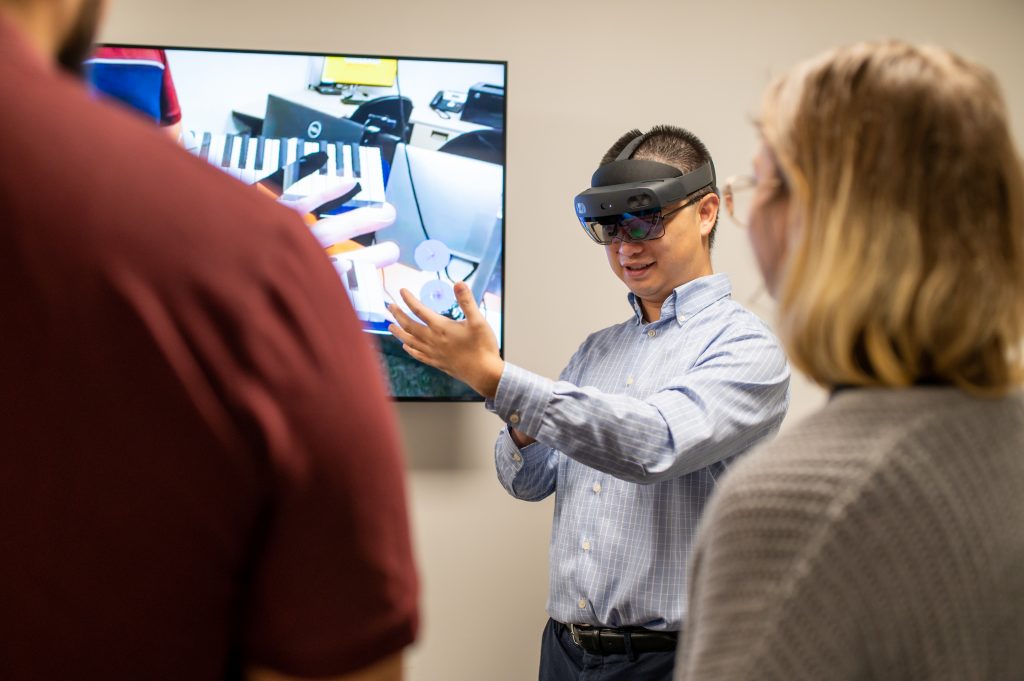Focus Areas at the Innovation Center
At the Innovation Center, we focus on three main areas: Artificial Intelligence (AI), Extended Reality (XR) and Digital Studies.
We use these technologies and our expertise to spark creativity and teamwork, helping you and your team reach new heights. Our faculty and industry experts lead engaging activities like presentations, discussions, hands-on demos, workshops, real-world experiences and consulting services—all designed to help you explore and succeed in these exciting fields.
Artificial Intelligence
Artificial Intelligence (AI) refers to the development of computer systems able to perform tasks that require skills such as abstraction, reasoning, creativity, and learning. Some of the main areas in this field are:
- Machine Learning: the development and application of algorithms that can learn from data, identify patterns, and make predictions, accomplished with minimal human input and without task-specific programming
- Neural Networks: a technique for processing data, inspired by the human brain, using a layered structure to analyze training data from which it learns to make inferences
- Visual Computing: computational techniques applied to the creation, analysis, and processing of images, videos, and three-dimensional models of objects and environments
- Natural Language Processing: computational techniques that enable computers to recognize, understand, and generate text and speech
Extended Reality
Extended Reality (XR) refers to technology that blends the physical world and digital worlds and provides a real-time interactive experience. This area includes:
- Augmented Reality (AR): the integration of computer-generated content with real-world environments, typically viewed through screens on smartphones or tablet computers
- Virtual Reality (VR): immersive computer-generated environments, typically viewed through a headset that covers one’s complete field of view
- Holographic Technology: three-dimensional images, formed from a light source, that can be viewed without special cameras or glasses

Digital Studies
Digital Studies refers to the intersection of digital technology with the arts, humanities, and social sciences, providing a framework for understanding and using technology in our daily lives. Areas of consideration include:
- Creativity: art, music, literature, and performance
- Culture: historical context, psychological and social impact, online communities and digital citizenship, ethical considerations
- Methodology: quantitative and qualitative analysis, visualization, communication, and preservation of data and information